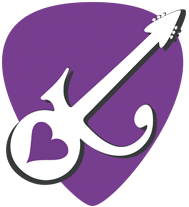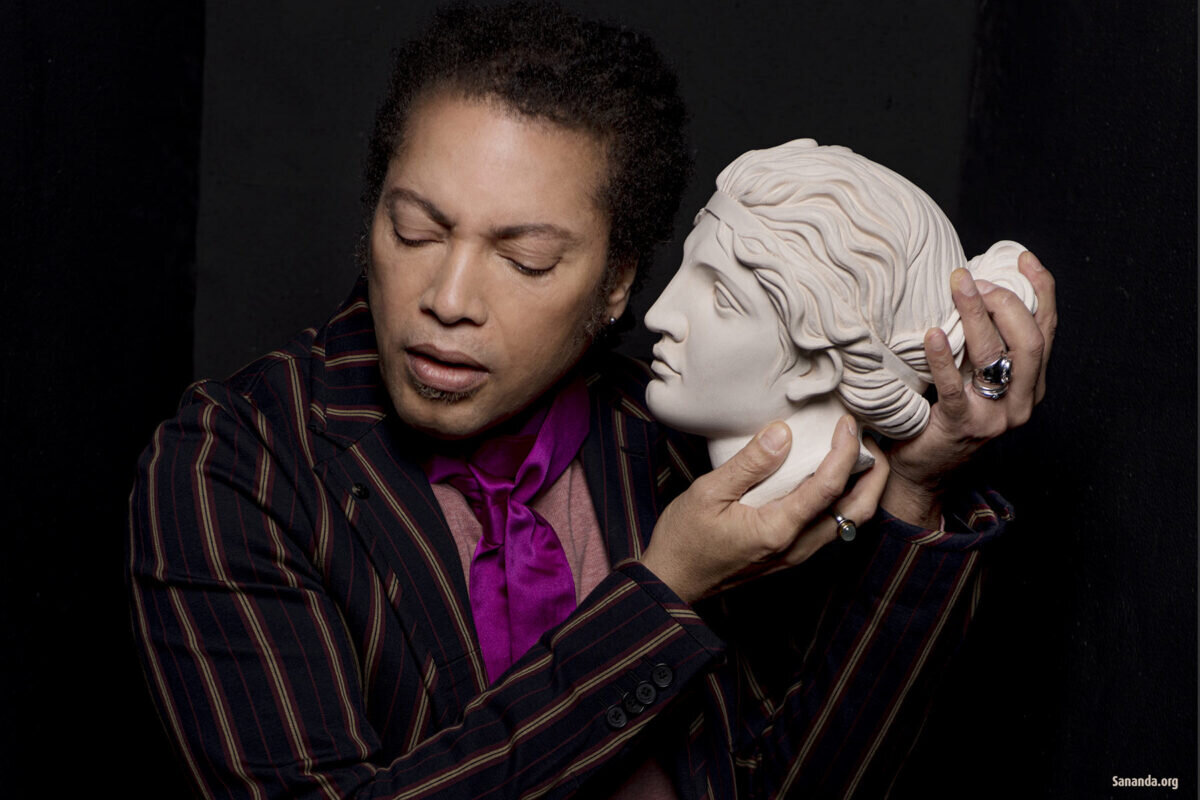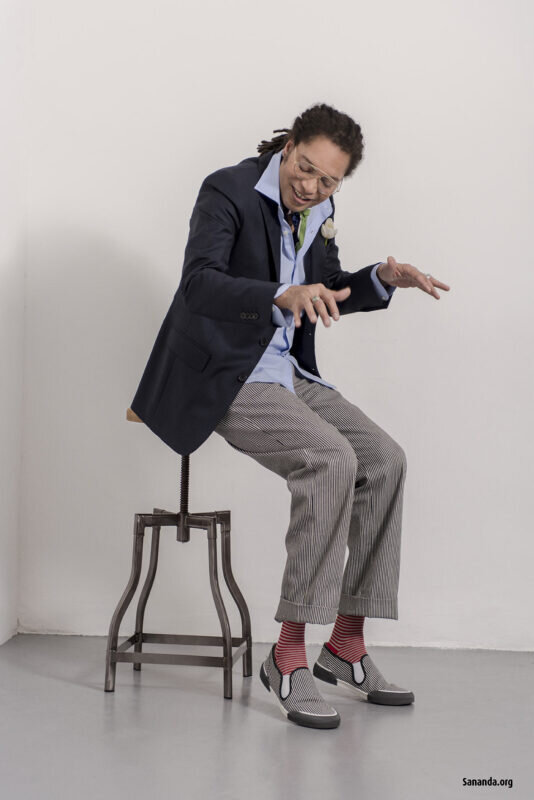“PRINCE!” by SANANDA MAITREYA
Sananda dedicated a piano piece to Master Prince and gave Nils Kruse and Michel Birbæk an exclusive interview.
Prince! by Sananda Maitreya. Pandora's PlayHouse ℗ 2021 TreeHouse Publishing
SANANDA MAITREYA ON PRINCE
Interviews in times of pandemic.
For ages, The Prince Fan Album have been fans of Sananda Maitreya. Now, when he released his piano piece "Prince!", it was the perfect moment to connect. In pandemic-free times, we would have attended one of his concerts and told him our excitement, but because of the pandemic, Plan B came into play, and it goes like this:
In Cologne, we wrote down our questions, emailed them to Rome, where Sananda's wife, Francesca, kindly held the interview with Sananda. They sent the sound file to us in Cologne, we emailed it to Canada to be scripted by Monica, she sent the scripted interview to Michel in Neu-Ehrenfeld, who cycled over to Ehrenfeld to Nils, who then designed the homepage. Thanks for your effort, you lovely people!
But what we are looking forward to, to simply go to concerts again and to meet each other!
The Prince Fan Album is happy to have Sananda on board, and the information that he and Prince made music together, ooh, makes you wish you were there!
Enjoy the interview: Sananda on Prince - with "Prince!"
Hi, I’m Sananda Maitreya, and it is a great privilege to have an opportunity to talk about my wonderful friend and mentor, Prince.
Q: Sananda, the first time I heard the song, “Prince”, I was waiting for the lyrics the whole time because I was so curious to hear what you would say about him. Then when I realized that there were no lyrics and it was an instrumental song, I could just let myself fall into the music and I thought that the song was just perfect that way. I’d love to ask you if you had lyrics in mind and left them out, or if the song was intended to be just an instrumental?
No, the song was always intended to be an instrumental, okay, and you have to just remember that we all get caught up in using the word “instrumental” as basically a way of saying a song without vocals, when in fact, there has been a long, long, very long and fruitful history of music without vocals. But in the modern times when we hear music, we do expect often to hear vocals. So, the lyrics were never an issue at all because there was never written -- anything written along those lines; it was just basically a way to mark and to show my appreciation, homage, to his profound influence on my life. And I think you can imagine that it’s better without words because he was one of those people for me that words can’t really satisfy the true meaning that he had for me.
Q: What was his greatest achievement for you? His guitar playing, his songwriting, his singing, his acrobatics, or even his composing?
Yes.
Q: All of it?
Yes. He was a total -- he was a total deal, the total package. You know, in sports they have the expression, for example if you’re a baseball player, they -- the highest accolade you can give a baseball player is to say that they are a five-tool player, meaning they can -- you know, they can hit for average, hit for power, run, throw, and defend, you catch very, very well. There is no weakness in their game at all. And his greatest inspiration to me and to many musicians who came after him was to basically try to strengthen every element of their game as possible. So, yes, everything about his was unique, and because everything about him was unique, sometimes even individual aspects of his gifts are often underappreciated or overlooked. He was, for me, in the pantheon of all time, master guitarist, who could basically make his instrument do whatever it was that he wanted it to do. He was a great wizard, and so yes, the answer to that question would be: yes, all of the above.
one of his messengers
literally came to the studio and requested a copy of the demo of the songs that we were recording
Q: How, where, and when did you first get in contact with one another for the first time, and how did you feel?
He basically first made contact with me because I got a message when I was in the studio mixing or finishing the mixing or recording of “Introducing The Hardline”, and he -- we got a message from one of his messengers that literally came to the studio and requested a copy of the demo of the songs that we were recording. And me and my producer at the time, Martyn Ware, had to good laugh at that because we thought: “Well, you know, no thanks.” That was kind of the first time we kind of made contact, was sometime in ’86 perhaps, or very early ’87. But I do remember the previous year, ’86, he came through London on tour, touring his -- it was the Parade Tour, which is one of the greatest concerts I’ve ever seen. I remember going to Wembley, the arena, and seeing that concert and that band, when Wendy and Lisa were still playing with him, and it was a tremendous, tremendous experience. And so, it was kind of awesome that like probably less than a year later, you know, he was calling my studio asking to hear, you know, some of the demos. So, that was pretty mind-blowing and awesome. But I would probably say sometime for sure between ’86 and ’87 was when we first made contact.
Q: What was your personal favourite moment with him?
I would have to imagine that that would be -- some of that would have to be confidential, but what was really great was that, you know, there’s always been this saying, “Be careful meeting your heroes,” because they can -- your image of them, your -- your imagination of them very often, you know, exceeds the reality of who they are. For me, Prince wasn’t necessarily one of those people, because the thing you’ve got to understand is, from the first moment I had heard him when I was still in junior high school or high school, I felt a very strong and kindred connection with him. I felt like he was like a long-lost brother or something. It was a very strong and visceral connection. And he was four years -- he was born in ’58 and I was born in ’62, and so the connection I felt with him was always immediate, that, he and I were kind of like, had the same father from different mothers or something, an experience like that. So, when we actually first met, you know, it was a very -- it was very confirming. It just felt like I was meeting someone that I knew intimately very, very well and had known him for a very long time, and it was like, the feeling you have when you meet a long-lost relative and someone that you have a great memory of. So, we were very close in -- in that way. He was very, very supportive very immediately, and we never had any like real issues between us or problems. You know, a little minor friction from time to time maybe, but just the nature of being, the type of beasts that we were, that was inevitable. But I always gave him the space and always deferred to the fact that I regarded him as a great mentor and someone without whom it would have been much, much more difficult for me to have gained some fraction in my life.
it was fun -
We knocked it out perhaps in probably an hour or two
Q: Did you ever compose a song together?
Yes, we did in fact do something together, but I have no idea actually what became of it after I -- I remember signing a release form at some point in the nineties, and that’s all I can remember of it, except that it was a pretty cool piece of work that we were just -- we were just -- I think it might even been two things we did together, but for sure at least one. And he was already in the studio in L.A. doing some work at Sunset Sound I think, which was one of his favourite places that he liked to set up shop. And I dropped by to say hello to him one day, whenever he was in town and I knew he was in town I would try to make sure I had a chance to, spend some time with him, because like I said, he was like a big brother to me, and I loved every opportunity I had, you know, to hang out with him. Yeah, so I remember we did something that day in the studio, and it was -- it was fun. We knocked it out perhaps in probably an hour or two hours at the most, and then I left to leave him to whatever he was doing before I got there. But yes, it’s true that we did do something together.
Q: Which of his albums were the most valuable for you, if there is one, and why?
Well, if there had to be one, and that’s kind of tough because he never made an album that wasn’t of interest to me, but you know, a lot of these questions also have a lot to do with the time something hit you, the time and place where you were in your space when that work became available to you. And so, for that, I would kind of have to say that the two that probably affected me the most would have been “Around the World in a Day”, the one that came right after “Purple Rain”, and the one after that, which was “Parade”. Those two in particular, “Around the World in a Day” and “Parade” have a particular resonance with me because they hit me at a certain time in my own development and I just have memories of walking around -- when I lived in Germany for example, I can remember walking around the streets of Frankfurt in the community where I lived, when I was going to do my grocery shopping and things of that nature, when I was getting my young cups together, and just listening to “Around the World in a Day” and just loving how liberating and free that record was, especially in the context of having come from such a record -- after such a record like “Purple Rain”. And as a person who’s also -- was a major -- is a major Beatles fan, there were also some other influences that I felt Prince were acknowledging and paying homage to in “Around the World in a Day” that I really love, as well as a relatively revolutionary approach that that record took through a sound to recording and mixing. And then like I said, after that, “Parade”, which was the record that he -- was present when I first moved to London and was a record I was listening to a lot. And like I said, I had a chance to see that tour and just -- it was a very special time for me. And then I would probably then say if I’m allowed to name another one, “Sign o’ the Times”, but that would definitely also be one that I would consider of huge importance. And in fact, that -- not to take too much advantage of this question, but I can remember at some point when I was making “Pandora’s PlayHouse”, I was actually -- remember wondering if “Pandora’s PlayHouse” might have been the closest thing I’ve done to his “Sign o’ the Times” approach. So, that -- those would be my -- my answers: “Around the World in a Day”, “Parade”, and “Sign o’ the Times” would probably be, for various reasons, the records that are most important.
Q: On your website, Sananda.org in some interviews you mention that Prince to you felt like he helped you producing this new album, “Pandora’s PlayHouse”, that you have released on March 15, 2021.
Well yeah, his spirit is forever alive in me and those who love him. That’s the gift that he gave to the world, was his great spirit. Not just his music, but his great spirit. Of course, when he died, he only released that spirit more to those who love him, and my love for him is real, and so that friendship never dies. And because he and I believed in -- ultimately in the same spirit and in the same laws that govern spirit, I don’t feel it sounds too crazy to say that there are certainly times when I still feel in communion with his great spirit. Because you know, I derive from Native-American cultures, and we don’t believe in death. Western religions and philosophies teach that, which is their way of perhaps getting people to focus, you know, on the life that they are living in the now. But the Eastern philosophies and the philosophies of the Native tribal religions, death is not something we really accept; we -- we accept it as a ritual part of life whereby we’re moving from one state of -- of transience to a more permanent state, or back to a more permanent state. Which is to say that we don’t really believe anything dies; it just changes and transforms, you know, its shape, its form to perhaps a higher form that cannot be so easily seen with the eyes but still exists in the eyes of God, in the eyes of eternity. So, since the Maestro died while I was finalizing “Prometheus & Pandora”, the album project previous to “Pandora’s PlayHouse”, I was very certain that by the time I undertook this project that his spirit would be more available to collaborate with me on this, because you know, that’s what friends are for.
Q: There is a cameo in your latest video for the song “Pie” of Prince as a graphic. Can you tell us about that?
Well, you know, I hope his spirit doesn’t like slap at me from the skies. “What are you doing using my image? I didn’t authorize you using my image!” But it was just basically, you know, my homage again to his love and friendship. He was very supportive, and again, I don’t feel ashamed to say that we had a very telepathic relationship, insomuch was we were very -- pretty much on a similar wavelength. There were times when we knew when the other was trying to make contact or reach out to the other. He was a wonderful big brother to me. He didn’t have to be; he could have been an asshole, but he wasn’t. And the irony is when I was promoting “Prometheus & Pandora”, I ran into a couple of journalists, one of whom had said some things that Prince had said to -- that the Maestro had said to that journalist about me, that really was very emotional because they’re the kind of thing that guys don’t tend to say to one another. And so, it was some very wonderful and moving things, and I just wanted to make sure that, you know, I reached back into the situation and honoured him, because like I said, I don’t believe he’s dead, I just believe that part of his expression he didn’t need anymore. He had done everything he could with that portion of his expression and Spirit moved him on to a -- to a different assignment.
the very bold and beautiful way that he lived his life,
the way he took his life and his art into his own hands
Q: To finish this conversation, did he teach you anything no one can ever take from you, and maybe did you teach him something as well?
I’m not sure what I taught him. I’m sure I influenced him somewhat, but that’s what happens when you have a master like Prince who understands that one of their own disciples has come of age, it’s inspiring for the teacher /for the master to see that they have inspired someone who has taken that inspiration and done something very positive and very moving, is going to move the master. So it goes without saying that I had at least some influence on him, insomuch as I’m sure that he was touched by the fact that one of his students, if you will, made something good of his influence. But in any event, what he taught me was not so much in words; it was just by the example of the way -- the very bold and beautiful way that he lived his life, the way he took his life and his art into his own hands, and like -- much like David Bowie, like Master Bowie, just reinvented the definition of what an artist was.
Q: Thank you very much, Sananda. On behalf of Michel and Nils, Purple Love from Cologne, from ThePrinceFanAlbum.com.
Well, again, it’s a privilege to speak with you guys. I wish you in your endeavors all the best, and I will always myself be a great fan of Master Prince.
>> All photos by Manuel Scrima. Listen 2 Sananda Maitreya’s new album Pandora’s PlayHouse and explore his official website www.Sananda.org<<





